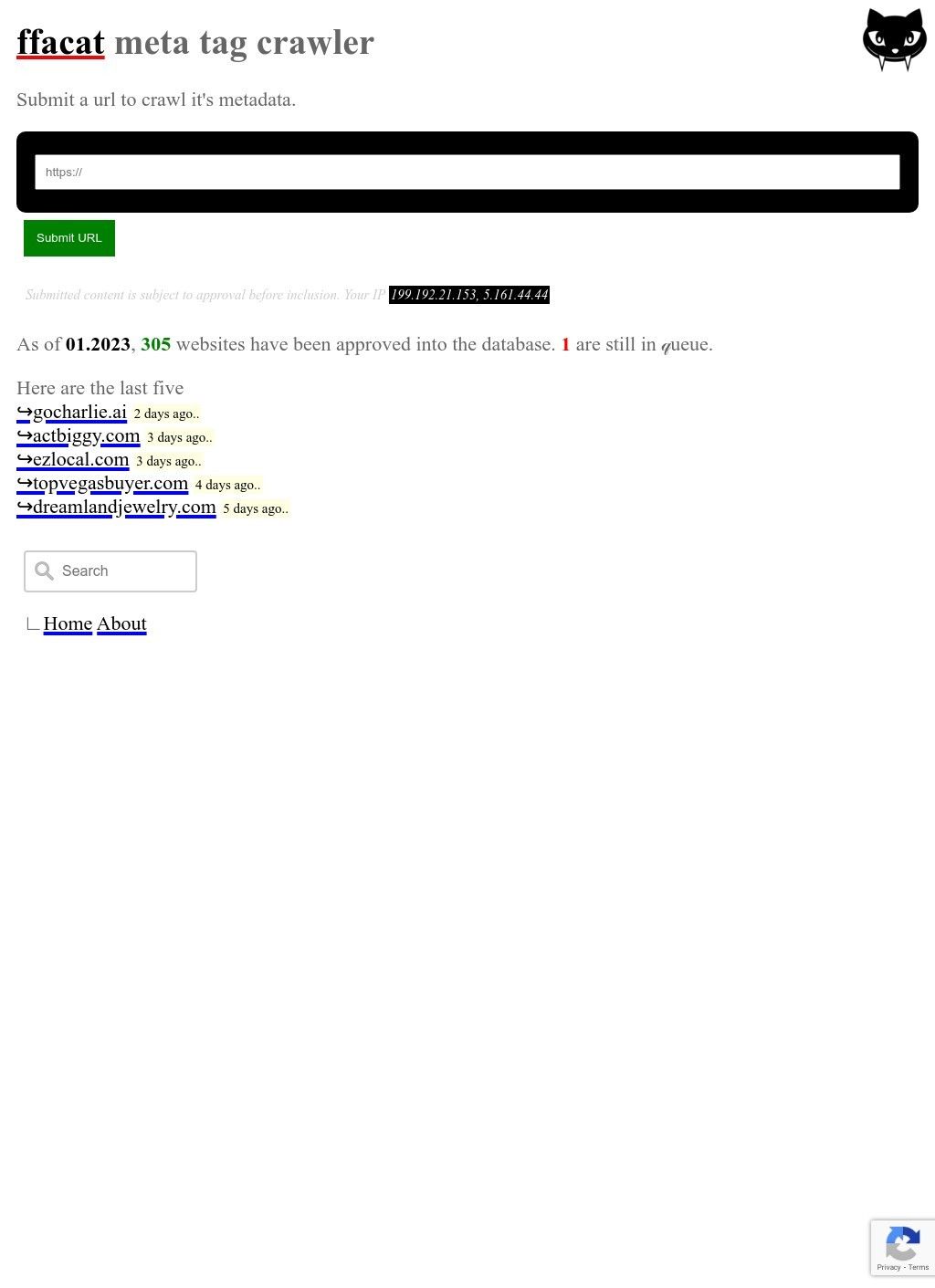The FFACat Meta Tag Crawler is a tool designed to scrape the metadata of web pages. Users can submit a URL for analysis, with the data then subject to approval before being incorporated into their database. While this additional step could potentially lead to delays and hinder real-time analysis, it ensures a degree of quality control that could arguably enhance the reliability of the gathered data.
As of a data date in September 2023, FFACat Meta Tag Crawler has approved and incisively integrated a total of 1036 websites into its database. An additional 19 websites are still pending, exemplifying the software's dedication to thorough review before approval. The transparency in presenting its performance statistics and operations should provide reassurance to end-users by demonstrating that the tool is actively used, maintained and up-to-date with the latest trends in web crawling.
It is worth mentioning that some of the recent URLs crawled by the tool include a range of websites from car washes, news providers, subscriptions boxes, fuel locks to mathematics tutorials. Displaying the variety of web domains that the crawler can handle, demonstrating its versatility and wide applicability, which may cater to a broad variety of user research needs.
Tagged items within the platform suggest a thoughtful incidence of relevant topics that might interest the database users, diverging from mainstream tech companies such as Tesla and SpaceX, to PHP management tools like PHPAdmin and PHPMDM, even including more niche categories like live counters and joke portals.
Interestingly, FFACat Meta Tag Crawler provides a live counter feature where users can monitor real-time statistics and data, implying that it strives to provide an interactive and captivating user experience. This space tourism tag suggests its ability to track futuristic and trending industries, which may offer added value for users wishing to monitor the progress in these burgeoning sectors.
Nevertheless, its user interface (UI), though simple and minimalist, could benefit from a slight rearrangement to answer user queries more efficiently. The tool could potentially fall short by possibly being viewed as less user-friendly, especially for individuals who are less tech-savvy. Reducing the number of hashtags and categorizing them into more manageable sections or categories can better navigation and improve usability for a broader audience.
In conclusion, the FFACat Meta Tag Crawler delivers a robust performance, displaying an admirable commitment to quality data collection along with a wide-ranging scope of websites that aids in delivering an enriching user experience. However, there is room for improvement in terms of improving visual presentation and user navigation, which would further enhance its appeal to a more extensive user demographic.
